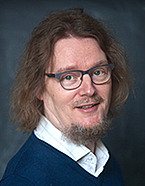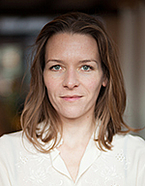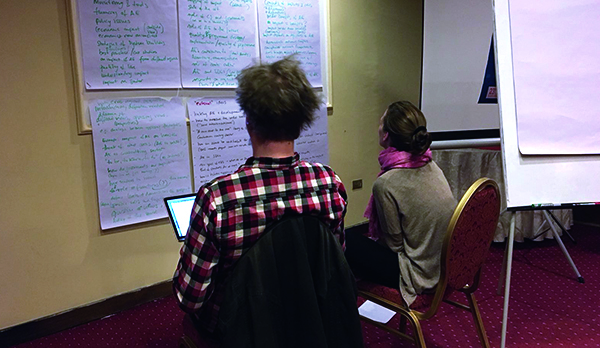

From left to right:
Johanni Larjanko
Editor-in-Chief
Ruth Sarrazin
Managing Editor
Technological development is not about machines. Teaching is not about books. Human development is not about GDP. It’s about people. We are all connected, and we all depend on each other. Take learning, for example. It is a deeply personal, individual (and lonely) endeavour. It is us, trying to make sense of it all. Nobody can learn for us. Usually nobody can even give us the answers we crave. If someone claims he can tell you the truths about life, the universe and yourself, be very wary. We must face the tough questions alone and try to come to terms with them. This is not to say that we are on our own. As a species we all need to deal with the same questions. We must think for ourselves, and each of us must find out what she or he believes in. Yet we do need others. We need guidance and support. We need someone to challenge us, to push us. Learning thrives in the meeting, in the exchange, in the debate. We need good educators. And while we did not know it yet at the time, we feel that we could not have chosen a better topic for what turned out to be the last issue of a journal called “Adult Education and Development”. In this issue, we place the spotlight on the key person, the adult educator.
The job of the teacher is the finest job on earth, if you ask us. It is not an easy one. Demands and expectations come from every direction. In addition, the feeling of personal responsibility weighs heavy. When we set out to do this issue, we naively thought that we needed to look for templates. We thought that we would be able to neatly describe what you need in order to become a good adult educator. We were wrong. Through many hours of discussion and racking of our brains, we started to see some outlines of the characteristics that we thought were necessary. Unfortunately they are not easy to codify into a curriculum for training teachers. Because how do you teach humour, passion, curiosity? It seems to us that these are personality traits more than learnable skills. You can learn the most intricate pedagogic theories in the world, but you may still be a lousy teacher if you lack these traits. Because teaching is about people. And a good teacher is a constant learner. Because you cannot fail to learn while teaching. We as humans all want to learn and we need those passionate teachers who want to learn with us.
Yes, we did find a holistic model that describes many core competences, and you will find it in this journal. We also found a lot of good examples of teachers, training programmes, cooperation and deliberation. We did not however come up with the definitive answers. What we offer in this issue is instead a kind of kaleidoscope picture. This is because there may not be a universal truth, or a single path to teaching. Teaching cannot be standardised. It has been a learning journey for us, one that has ended in a lot more questions than answers. That is OK. To us, learning is a lot about asking the right questions, and then reflecting, alone and with others. Accordingly, we never stop learning, and we are never done. To coin a phrase, one could say: I learn, therefore I am.

This is the last issue of AED, as the funding is coming to an end. We started our work as editors in 2013 and the last seven years have been quite a journey for us. This journal, designed as a tool of exchange and professionalisation, has been a constant learning experience for us as well. We have done a quick calculation: seven issues packed with contributions from 251 colleagues from 81 countries, 2454 pages in total in all the three languages.
With every issue, the world came to our desk, and we felt it becoming bigger and smaller at the same time. Bigger because it is so diverse, exotic and surprising. Smaller because yes, context matters, but it does not determine you. In the end, we are all the same. We all share this same planet, and we are made of the same fabric.
AED helped us to better understand the world.
It has been incredible to work with so many dedicated people on this journal. We would like to thank our editorial and consultancy boards which helped us to look at the topics from different perspectives, to ask the right questions and to think outside the box. They were truly “critical friends”, and their thorough comments helped us to get better with every issue.
We thank all our authors, storytellers, interviewees and columnists for sharing their experiences and expertise, and for making this journal what it was: an open, critical, diverse and happy place.
We also thank the graphic designers for the layout, the artists who made each issue unique, and the translators who guaranteed the high quality in all three languages with a great deal of linguistic refinement.
And we thank you, dear reader, for reading us. We will miss your handwritten letters and postcards from all parts of the world, and we will miss your insights and constant feedback that showed us that all the work was very much worthwhile.
They say that you should leave when the party is still in full swing. This is what we are doing now. We hope you enjoy reading this issue.

DVV International operates worldwide with more than 200 partners in over 30 countries.
To interactive world map